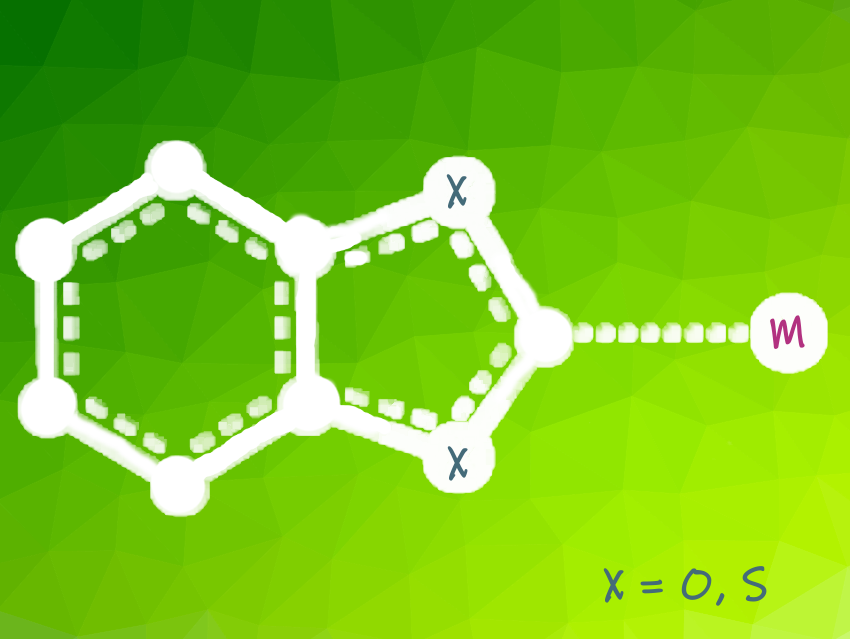O- and S-heterocyclic carbenes (OHCs, SHCs) are stronger π acceptors than N-heterocyclic carbenes (NHCs) and they lack substituents at the heteroatoms (pictured below). This results in different electronic and steric characteristics that make OHCs and SHCs interesting ligands for coordination chemistry.

To enhance the general accessibility of OHCs and SHCs, Koop Lammertsma, Vrije Universiteit Amsterdam, The Netherlands, and colleagues have developed convenient syntheses of new OHC and SHC transition-metal complexes. The team compared the benzannulated derivatives of OHC and SHC to the NMe-substituted NHC derivatives (pictured above). Their iridium(I), iridium(III), and coinage-metal(I) (Cu, Ag, Au) complexes have been accessed in good yields. The team used:
- dissociation of a suitable olefin (dibenzotetraoxofulvalene) as the starting point for the Ir(I) OHC complex,
- deprotonation of the precursor salt benzodithiolium tetrafluoroborate for the Ir(III) SHC complex,
- transmetalation from a precursor Ag complex for the OHC and SHC coinage metal(I)complexes. Reacting benzodithiolium tetrafluoroborate with silver acetate resulted in an SHC silver complex. It acts as a carbene transfer agent.
Molecular structures and detailed bonding analyses of these complexes showed their strong π-accepting properties. These can be beneficial in synthetic and catalytic applications. According to the researchers, the applications of the new benzannulated heterocyclic carbenes OHC and SHC are a target for further study.
- Synthesis, Structures, and Electronic Properties of O- and S-Heterocyclic Carbene Complexes of Iridium, Copper, Silver, and Gold,
Maximilian Joost, Martin Nieger, Martin Lutz, Andreas W. Ehlers, J. Chris Slootweg, Koop Lammertsma,
Organometallics 2020.
https://doi.org/10.1021/acs.organomet.0c00066




